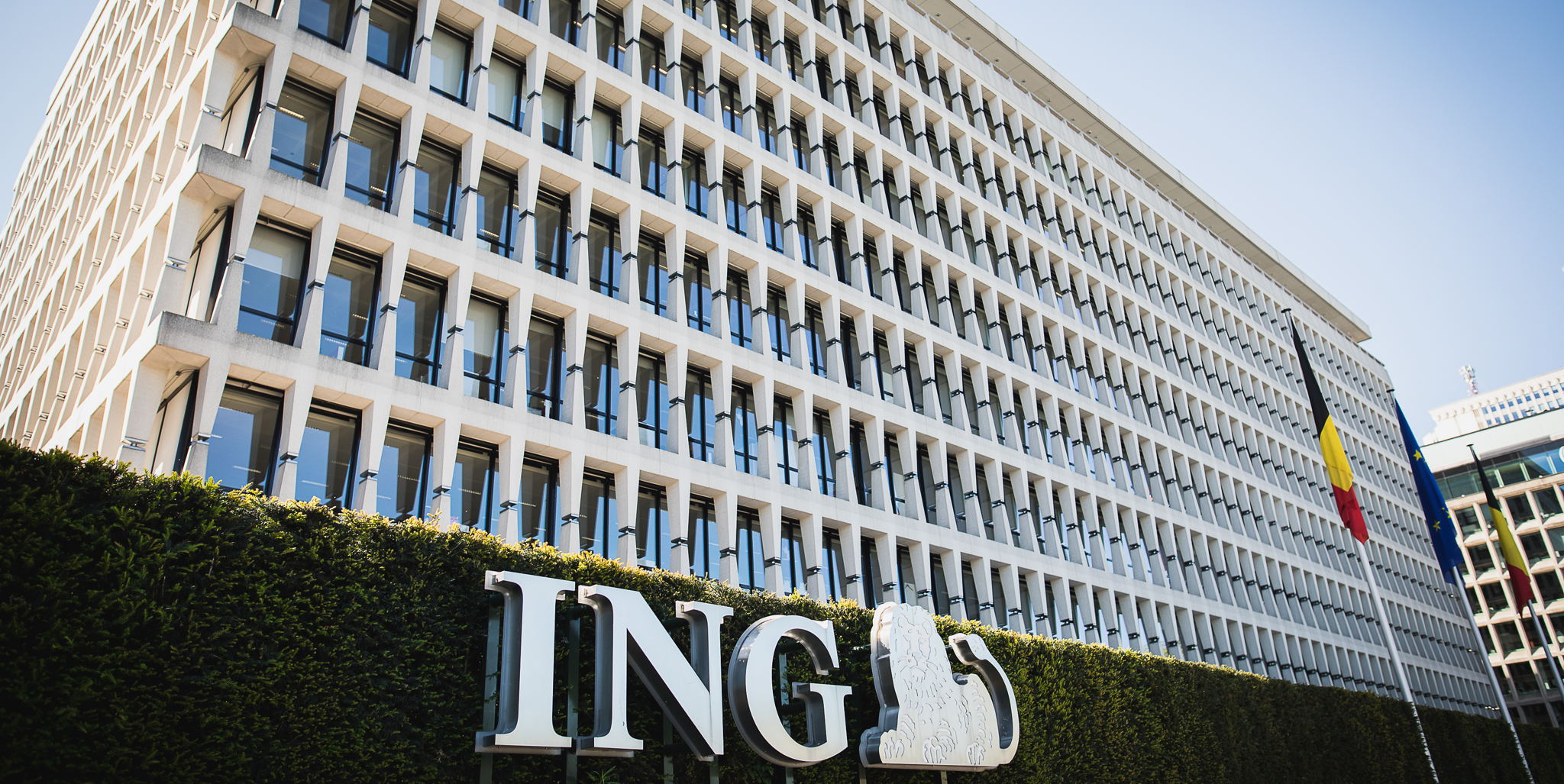New Collective Labour Agreements pave the way to the future way of working at ING Belgium
Friday, 5 March 2021 - Brussels - ING Belgium and the majority of its social partners have signed new Collective Labour Agreements. These agreements will allow the bank to progress towards its ambition to be a frontrunner in digital banking services. The focus of the agreements is two-fold. The first part creates a framework to promote internal mobility, through reskilling and upskilling, and accompanying employees in the continuous evolution of society at large and the banking sector specifically. The second part paves the way to the future of work at ING, including the ambition to enable employees to work from home on average 50% of the time.
Digitalisation is and will remain an important focus for the future of ING, while maintaining a mix of physical and digital propositions. The new Collective Labour Agreements (CLA) enable the bank to review its own model by equipping its staff so that they can perform other functions, focus on customer advice and offer more digital solutions.
SETCA-BBTK, CNE and ACV puls endorsed the propositions of the news CLAs. The liberal union, ACLVB-CGSLB, however, has rejected them. While ING Belgium regrets this situation and respects the decision of the liberal union, this has no impact on the implementation of these agreements.
“What we presented today is the result of constructive dialogue with the majority of our social partners whom I would like to thank for their flexibility. The Collective Labour Agreements will enable us to move forward, continue investing in our employees and build the foundations of the future way of working at ING. It is a reflection of how we at ING will offer a differentiating and innovative working environment. Moreover, these agreements will allow our bank to address the evolving needs and behaviours of our customers in the context of a rapidly-changing society.”
Peter Adams, CEO ING Belgium
An answer to today’s reality and a preparation for the challenges of tomorrow
In order to meet the challenges ahead and continue to improve the services offered to its customers, ING needs to raise its level of adaptability and its craftsmanship. The first agreement therefore focuses on creating a framework to promote internal mobility and accompany all employees in the continuous evolution of the bank as a response to the ever-changing circumstances, the challenging economic context and rapidly changing customer behaviour. In this regard, ING Belgium will launch a job-to-job incubator which will support employees towards new work opportunities within ING.
“These new CLA’s represent another step for ING towards being a modern employer, enabling our colleagues to work on an average 50% from home and 50% from our offices where possible. ING also continues to invest in talent and capabilities to achieve its ambition to stand out as a front runner in digital banking services. By reskilling, upskilling and focusing on future-proof capabilities, we aim to accelerate the craftsmanship of our people, while stimulating the re-orientation to other jobs aligned with ING’s digital and data-driven strategy.”
Maarten van Beek, HR Director ING Belgium & the Netherlands
These agreements cover 2021 (including the announcements made on 8 December 2020 that will be implemented as from now on) until end 2023.
A differentiating and innovative working environment
The second part of the new Collective Labour Agreements (for an indefinite period) concern more than 7,000 employees in all and define the future direction of working at ING.
Several new measures have been designed to promote the wellbeing of ING’s employees including:
- Working from home (from 1 May 20211)
- aimed at reaching an average of 50% working from home
- from home or another location in Europe2
- Budget to equip employees with ergonomic tools at home
- New measures to promote the sustainable trend of combi-mobility, giving employees the opportunity to combine different means of transport during their commute.
1 Provided that the corona measures allow it
2 Within some boundaries such as a maximum of 30 days
CLA_ING_press release_final.pdf
PDF - 135 Kb
.jpg)